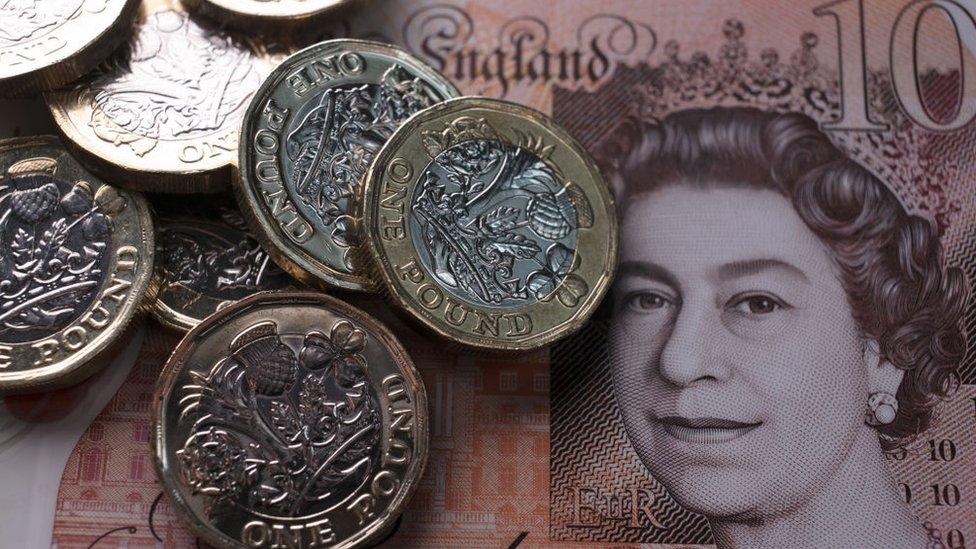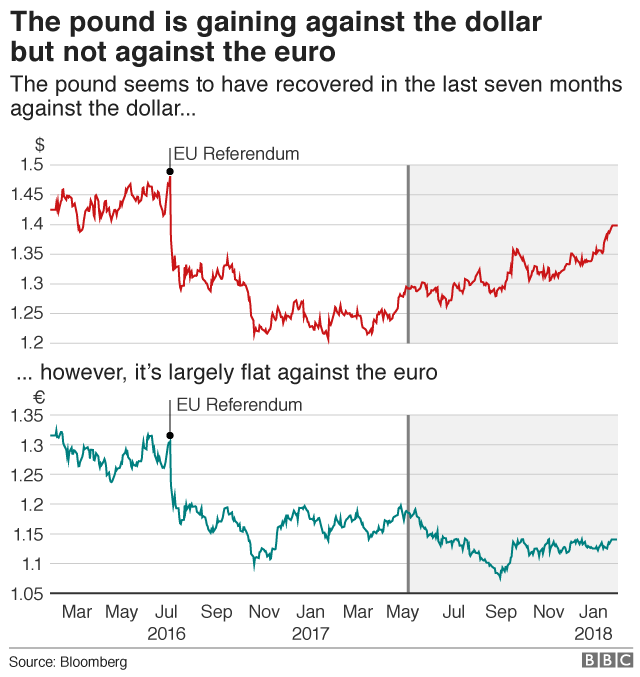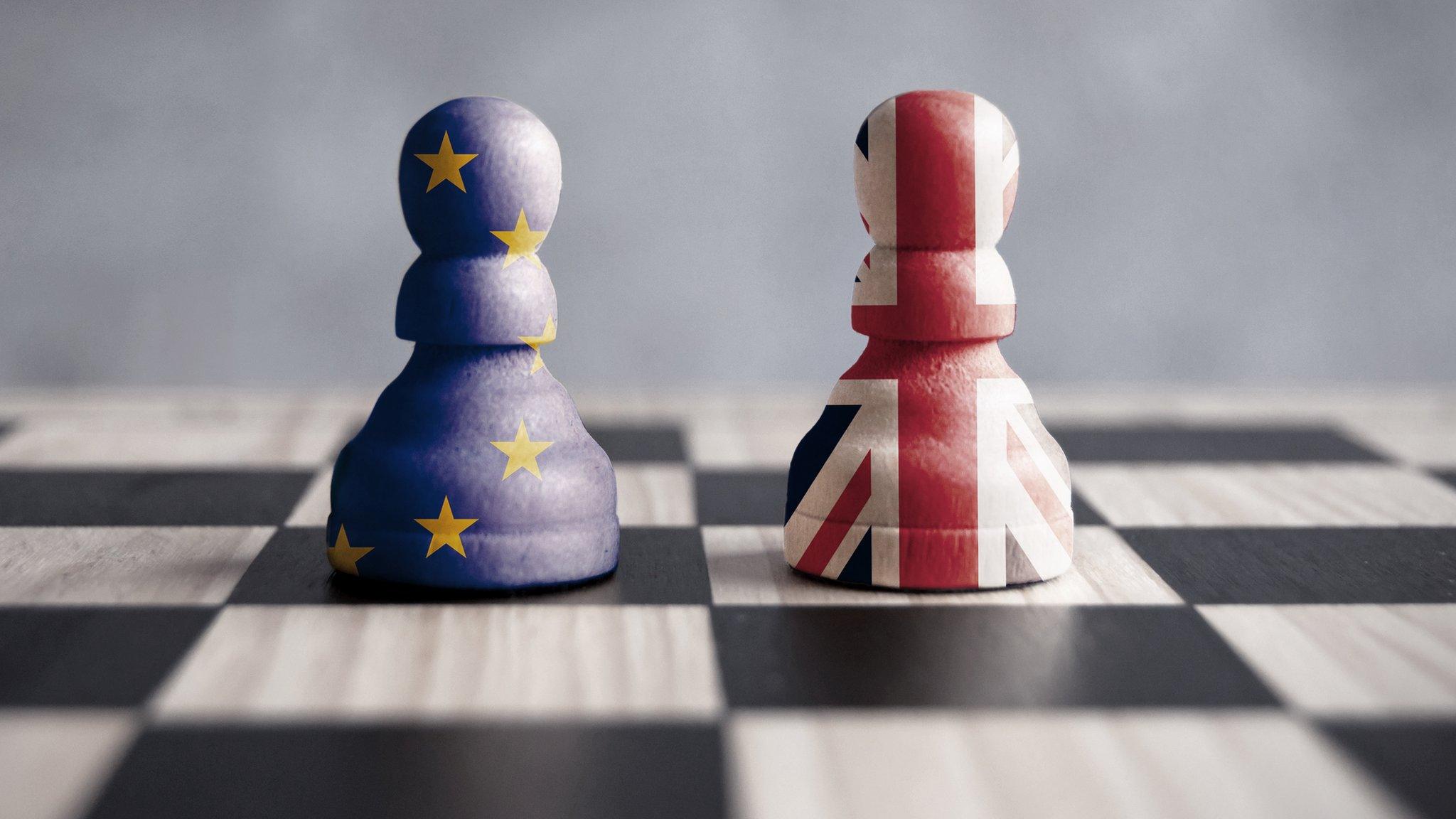Pound hits $1.40 for first time since Brexit vote
- Published

Sterling has extended its rally against the dollar to rise above $1.40 for the first time since the Brexit vote.
Analysts said the pound's recovery was helped by falls in the dollar and a rethink by some investors about the UK's economic prospects.
Others said that despite little development in the Brexit talks this month, there was some optimism about the UK's chances of securing a deal.
The pound rose by 0.3% to $1.4030 on Tuesday afternoon before easing back.
Sterling fell below $1.20 to a 30-year low against the dollar in the months after the UK voted to leave the European Union, contributing to a spike in inflation as imports became more expensive.
But the pound has seen a steady recovery in recent months, which benefits UK tourists visiting the US and could bring down the cost of imports.

Analysts pointed to a range of factors for the pound's rise against the dollar, which saw it also briefly touch $1.40 on Monday night.
"There is definitely a feeling that Brexit is now far more likely to be 'soft', which underestimates the risk for more problems ahead in our view but for the time being is leading to demand for [the pound]," said John Marley, head of FX strategy at currency advisers Infinity International.
French President Emmanuel Macron told the BBC over the weekend that the UK could have a bespoke trade deal with the EU.
Earlier this month, the pound surged after a news report that the Spanish and Dutch finance ministers had agreed to seek a Brexit deal that kept the UK as close to the EU as possible.
But others said the recovery in sterling was overdue.
Laith Khalaf, a senior analyst at Hargreaves Lansdown, said there was an element of investors "returning to business as usual" for the pound.
"There's some realisation that the steep falls in the pound were casting too negative a light on the prospects for the currency and the UK," he said.
Trevor Greetham of Royal London Asset Management said the pound's strength was better explained by a weaker dollar.
"There's not been any radical change in Brexit talks," he said, adding that otherwise the pound would have gained more against the euro.
The pound fell 0.2% against the euro on Tuesday to stay below €1.14.
- Published22 January 2018
- Published31 December 2017
